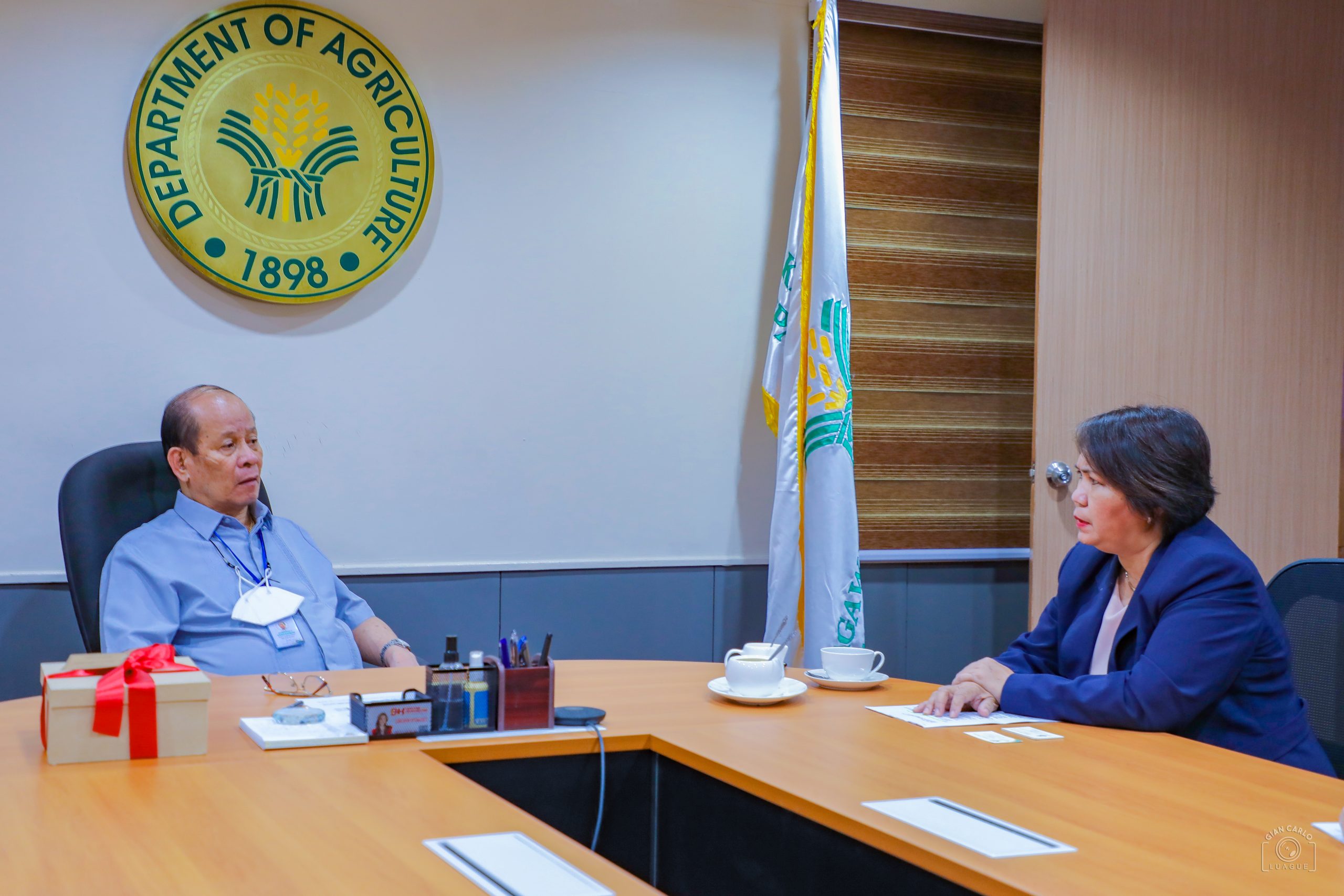
Senior Undersecretary Domingo Panganiban personally welcomed Philippine Ambassador to Indonesia Gina Jamoralin during her visit to the Department of Agriculture (DA) to discuss potential areas of agricultural cooperation between the Philippines and Indonesia.
During the diplomat’s courtesy call on November 22, Senior Undersecretary Panganiban expressed that the DA remains open to proposals that can further develop the high value crops industries of both countries. The Sr. Usec also discussed the possibility of Indonesia supplying urea fertilizer to the country through government-to-government approach.
The Indonesian Ministry of Agriculture previously proposed collaborative efforts, particularly on the research and development of the value chain of coconut and coffee, during the 3rd Meeting of the Philippines-Indonesia Joint Agriculture Working Group last August 2017.
The 4th Meeting of the Philippines- Indonesia Joint Agriculture Working Group (JAWG), set to be hosted by Indonesia, could be utilized as a platform to raise issues and explore technical cooperation in agriculture.
The two countries will also sign a Memorandum of Understanding (MOU) on Fisheries Cooperation, which is currently undergoing review by the Philippine Department of Foreign Affairs before being transmitted to Indonesia.
The MOU touches on: combating illegal, unreported, and unregulated fishing practices; sustainable aquaculture development; post-harvest and fish processing development; education and training; coastal management and development; and trade and investment.
The DA, Senior Usec. Panganiban added, also hopes to raise its market access request to Indonesia for the export of corned beef products following the Indonesian Ministry of Agriculture’s Regulation No. 34/2016, which requires that beef products from the Philippines be free from Bovine Spongiform Encephalopathy (BSE) and foot-and-mouth disease (FMD) without undergoing vaccination.
The Philippines, however, maintains that the beef raw materials used in its corned beef production were sourced from New Zealand and Australia, which are both recognized by the World Organisation for Animal Health (OIE) as having negligible BSE risk status and FMD-free where vaccination is not practiced ### (Krystelle Ymari A. Vergara, DA-AFID)











